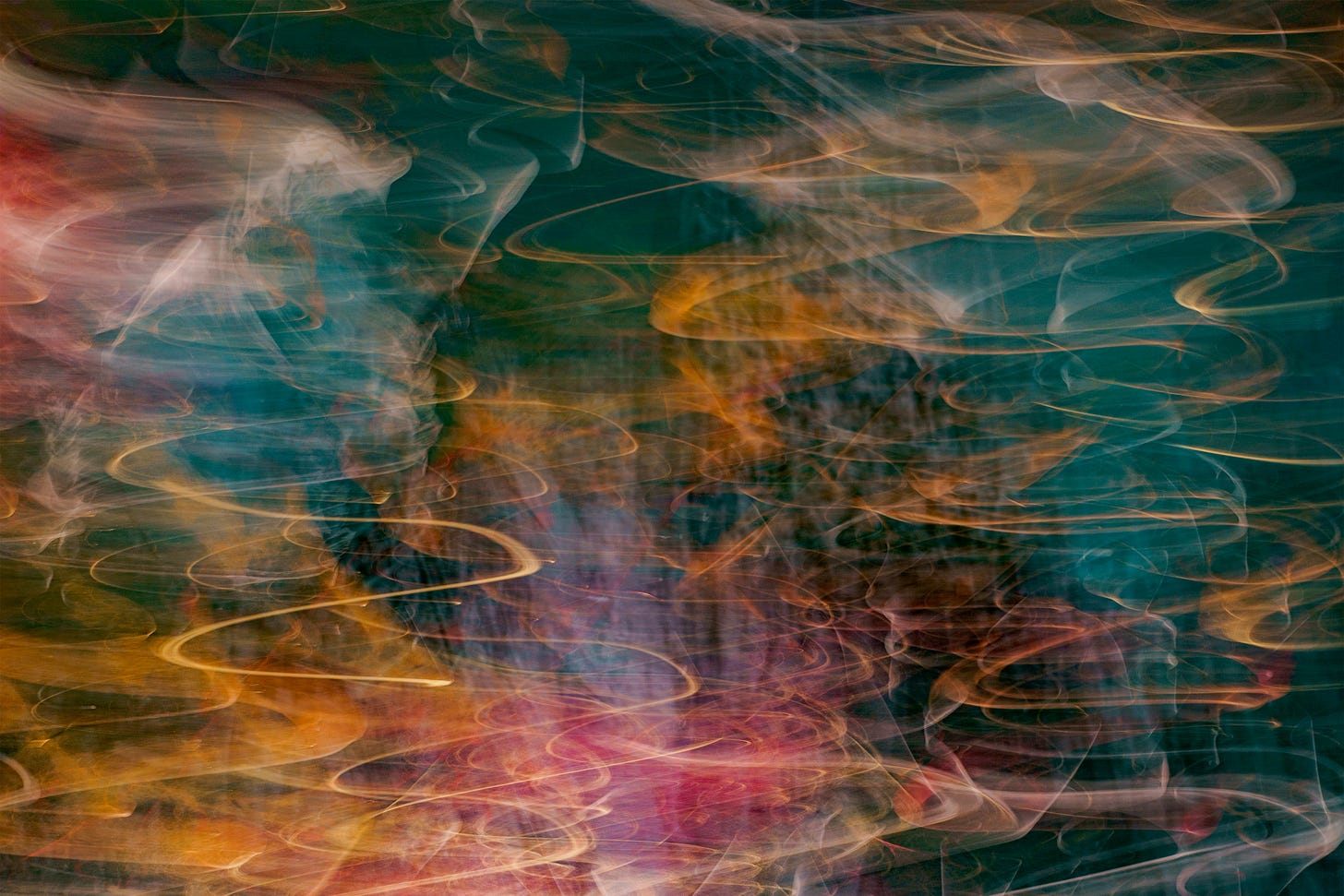The more I learn, the less I feel like I know; the more I refine a skill, the more it defines me; the more expertise I accumulate, the less my choices feel liberating. In turn, I’ve been thinking about this struggle between expertise and generalization. In turn, I’ve found myself revisiting Susan Sontag’s (1993-2004) essay, The Aesthetics of Silence.
Her essay argues that ‘modern’ artists often move toward self-abolition, artistic disavowal. Self-abolition becomes a form of transcendence, and transcendence is an inherent part of the “project of “spirituality” for itself.” It’s an ouroboros-type problem: art defines the zeitgeist, the rejection of art leads one toward spiritual (and so, zeitgeistian) transcendence, but the artistic silence that comes after rejection leads us toward a new spirit of the age. The modern era, then, cannot help but perpetuate itself.
As the “scene changes to an empty room” (which we should read as the creation of the new age), we find that Arthur Rimbaud has quit poetry to trade slaves from Africa. Marcel Duchamp has abandoned art for chess. Ludwig Wittgenstein has dismissed his own philosophical achievements as misunderstandings. The rejection of their artistic vocations means what, exactly? That their achievements are “trifling, of no importance.” But their expertise and their consequent silence does not dampen their work. Rather, disavowal is its newfound validity, and disavowal is a form of seriousness.
That seriousness consists in not regarding art (or philosophy practiced as an art form: Wittgenstein) as something whose seriousness lasts forever, an "end," a permanent vehicle for spiritual ambition. The truly serious attitude is one that regards art as a "means" to something that can perhaps be achieved only by abandoning art…
Hence the paradox: the rejection of mastery affirms its value. But one must first reach mastery.
Expertise, in both the artistic and corporate worlds — and even generalization — is an inherent trap. To master a craft, field, or niche is to become indispensable. But mastery seems to demand a narrowed scope and focus, a shrinking sense of curiosity as you pummel to a distant (but close) point of knowledge. Generalization is shockingly far from liberation, too — as ‘doing everything’ spreads you from point A to point Z without substantive engagement if that’s the only thing you do.
Generalization is useful, however, and the only way to reach mastery of anything. A house needs a foundation and similarly, one needs foundational skills. In my own trajectory, especially throughout undergrad, I tried everything (see: government, CS, film, anthropology, economics, graphic design, and several more) before settling on architecture and sociology. I am thankful for the four years I had to experiment and get a little taste of it all. It certainly makes me feel like my current choices (grad school, re: even deeper specialization) are my own. Despite this, it was also exhausting. And I was (am) driven by a sense of anxiety that I needed to figure ‘it’ out for myself. My ‘it’ being a dedicated effort to make sure that my future career was lifelong, that it was what I would steep myself in forever.
When I had made my choices in undergrad, I had also made a choice to move from generalization to ‘specialization,’ in its most rudimentary form. I was acutely aware of this. And I was acutely aware of a creeping rigidity that I had imposed on myself: I didn’t want my four years to feel like a waste, but along with that, the creeping rigidity of needing to now know something. That something that I should be able to articulate exactly what I do and why I do it. But in that articulation, in the newfound certainty, the initial joy of exploration begins to dull. Inevitably, one reaches a point of specialization so deep that the ‘it’ feels wide again. And that’s where exploration reemerges. But it’s a very unique, particular joy — one that is so individual, so unknowable, that the joy of it seems to fade a little when you share with other people who don’t get the ‘it.’
It’s a strange irony: we pursue expertise to gain freedom, but expertise often leads to a kind of professional ‘silence.’ We become stuck in our own competence, trapped in roles we once sought out with excitement. And in that stuckness, the possibility of reinvention feels further and further away. But, one can’t literally embrace silence “and remain an artist,” rather, as Sontag writes, the “rhetoric of silence indicates [a] determination to pursue his activity more deviously than ever before.” Rejection (silence) breeds production (exploration for oneself). That must be freedom, then.
How do we work without calcifying into the roles we eagerly, willfully take on? Maybe the answer lies in embracing a different kind of mastery — one that makes space for doubt, for reinvention, for the possibility of walking away. I’d like my goal to be to silence uncertainty while keeping it alive. To allow expertise to remain porous rather than absolute. In short, this feels like the mastery of being a beginner, to remove the anxiety related to choice.
So, if expertise is a kind of silence, then maybe curiosity is the only way to keep speaking. That means mastery is not the destination, but the thing, the ‘it’ we must be willing to leave behind.
You can read Sontag’s full essay here.





